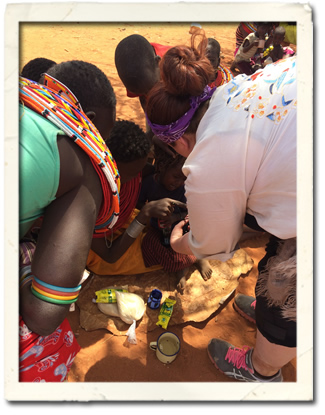EA-IRES: East African International Research Experience for Students
 The Colorado State University (CSU) EA-IRES Fellowship, hosted by the Natural Resource Ecology Laboratory (NREL) in the Warner College of Natural Resources in partnership with University of Nairobi (UoN), Kenya, will provide five qualifying Colorado State University students an opportunity to study dryland social-ecological systems in Colorado and East Africa.
The Colorado State University (CSU) EA-IRES Fellowship, hosted by the Natural Resource Ecology Laboratory (NREL) in the Warner College of Natural Resources in partnership with University of Nairobi (UoN), Kenya, will provide five qualifying Colorado State University students an opportunity to study dryland social-ecological systems in Colorado and East Africa.
This one-year student-driven program begins with two semesters of training in Colorado on the basics of research, drylands and social-ecological systems, and the writing of student research proposals. The fellowships culminate in a five-week field research experience in East Africa in Summer session. Data analysis and communication of results happens during the following fall and spring semesters.
Travel and modest living expenses for the field experience are covered by the fellowship, and fellow receive an additional $1,400 Fellowship Award to help defray some expenses related to supplies and coursework. The fellowship includes professional development, as well as cultural and social activities both inside and outside the classroom and the country.
This program follows CSU’s Office of International Programs’ organizational, health and safety protocols.
The 2015-16 Fellows spent five weeks of the summer of 2016 in Samburu, Kenya, studying household water, human-wildlife-conservation interactions, land use and climate, women's health and traditional herbs, and traditional medicines for livestock.
The 2016-17 Fellows will be spending five weeks of the summer of 2017 in Simanjiro, Tanzania, to conduct research on traditional concepts of sustainability, land use impacts on the landscape, problematic plant species, and aviculture (beekeeping). Please check our blog posts on EcoPress.
The 2017-18 Fellows will likely be traveling to Samburu, Kenya, for their summer field experience. This group will be announced in the fall of 2017, so stay tuned!
This program is supported by the National Science Foundation under Grant No. 1460145. Any opinions, findings, and conclusions or recommendations expressed are those of the author(s) and do not necessarily reflect the views of the National Science Foundation.